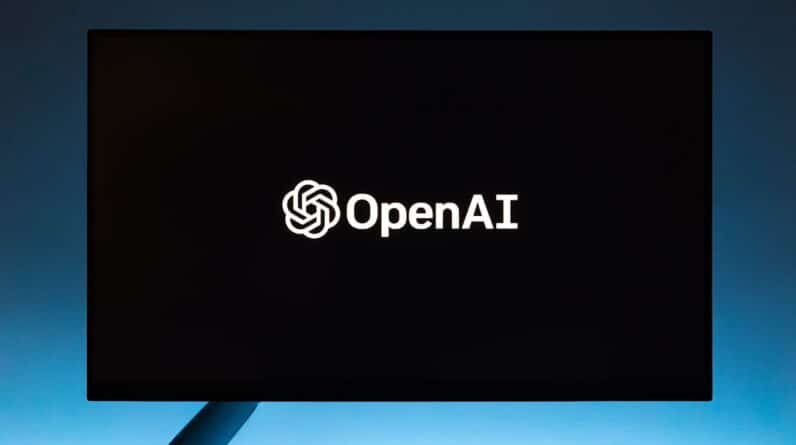As you delve into the world of music, you may have noticed a significant transformation in how music is created, distributed, and consumed. The advent of artificial intelligence (AI) has ushered in a new era for the music industry, reshaping traditional practices and introducing innovative methodologies. From composing melodies to curating playlists, AI is becoming an integral part of the music ecosystem.
This technology not only enhances creativity but also streamlines processes, making it easier for artists and listeners alike to engage with music in unprecedented ways. The integration of AI into the music industry is not merely a trend; it represents a fundamental shift in how music is perceived and produced. As you explore this fascinating intersection of technology and art, you will discover how AI tools are empowering musicians, transforming listener experiences, and even redefining the roles of industry professionals.
The implications of these advancements are profound, prompting discussions about creativity, authenticity, and the future of music itself.
Key Takeaways
- AI is revolutionizing the music industry by transforming the way music is created, curated, analyzed, marketed, and promoted.
- AI in music creation is enabling artists to explore new sounds, styles, and compositions, and is also providing tools for non-musicians to create music.
- AI in music curation and recommendation is enhancing the music listening experience by providing personalized recommendations and playlists based on user preferences and behavior.
- AI in music analysis and insights is helping industry professionals to understand trends, patterns, and consumer behavior, leading to better decision-making and strategy development.
- AI in music marketing and promotion is enabling targeted and data-driven campaigns, helping artists and labels to reach the right audience and maximize their impact.
AI in Music Creation
When it comes to music creation, AI has emerged as a powerful collaborator for artists. You might be surprised to learn that AI algorithms can now compose original pieces of music, generating melodies and harmonies that rival those created by human musicians. These systems analyze vast amounts of existing music to understand patterns, structures, and styles, allowing them to produce compositions that are both innovative and familiar.
For you as a listener or creator, this means an endless source of inspiration and new ideas at your fingertips. Moreover, AI tools are not just limited to generating music; they can also assist in the songwriting process. Imagine having an AI partner that helps you brainstorm lyrics or suggests chord progressions based on your input.
This collaborative approach can enhance your creative workflow, enabling you to experiment with different styles and genres without the constraints of traditional songwriting methods. As you embrace these technologies, you may find that they not only augment your creativity but also challenge your understanding of what it means to be a musician.
AI in Music Curation and Recommendation

In today’s digital age, the sheer volume of music available can be overwhelming. You may find yourself scrolling through countless playlists and albums, unsure of what to listen to next. This is where AI shines in the realm of music curation and recommendation.
Streaming platforms utilize sophisticated algorithms to analyze your listening habits, preferences, and even the emotional tone of songs to curate personalized playlists tailored just for you. This level of customization enhances your listening experience, making it easier to discover new artists and genres that resonate with your tastes. Furthermore, AI-driven recommendation systems are constantly evolving.
They learn from your interactions, adapting to your changing preferences over time. As you explore new music, these systems can introduce you to hidden gems that you might not have encountered otherwise. This dynamic relationship between you and AI not only enriches your musical journey but also fosters a deeper connection with the art form itself.
You may find that your musical horizons expand as you embrace the recommendations provided by these intelligent systems.
AI in Music Analysis and Insights
The analytical capabilities of AI extend far beyond mere recommendations; they also provide valuable insights into music trends and listener behavior. As you engage with various platforms, AI algorithms analyze data from millions of users to identify patterns in listening habits, genre popularity, and even the emotional responses elicited by specific tracks. This wealth of information can be invaluable for artists and industry professionals seeking to understand their audience better.
For musicians like yourself, these insights can inform your creative decisions and marketing strategies. By understanding what resonates with listeners, you can tailor your music to meet their preferences while still maintaining your unique artistic voice. Additionally, record labels and marketers can leverage this data to identify emerging trends and capitalize on them effectively.
As you navigate the ever-changing landscape of the music industry, these analytical tools can empower you to make informed choices that enhance your career.
AI in Music Marketing and Promotion
In an industry where visibility is crucial, AI is revolutionizing how music is marketed and promoted. You may have noticed targeted advertisements on social media platforms or personalized email campaigns that seem to know exactly what you want to hear. These marketing strategies are often powered by AI algorithms that analyze user data to create tailored promotional content.
For artists looking to reach their audience effectively, this technology offers a powerful tool for engagement. Moreover, AI can optimize marketing campaigns by predicting which strategies will yield the best results based on historical data. As an artist or industry professional, you can harness these insights to allocate resources more efficiently and maximize your reach.
Whether it’s through social media ads or playlist placements, AI-driven marketing allows you to connect with potential fans in a more meaningful way. This shift not only benefits artists but also enhances the overall experience for listeners who receive content that aligns with their interests.
Ethical and Legal Considerations of AI in Music

As with any technological advancement, the integration of AI into the music industry raises important ethical and legal questions. You may find yourself pondering issues related to copyright, ownership, and the authenticity of AI-generated content. For instance, if an AI composes a song, who holds the rights to that creation?
These questions challenge traditional notions of authorship and creativity, prompting discussions about how we define artistic expression in an age dominated by technology. Additionally, there are concerns about the potential for AI to perpetuate biases present in existing music data. If algorithms are trained on a limited dataset that reflects certain cultural or stylistic preferences, they may inadvertently reinforce those biases in their outputs.
As a listener or creator, it’s essential to remain aware of these implications and advocate for ethical practices within the industry. By engaging in conversations about the responsible use of AI in music, you can contribute to shaping a future where technology enhances creativity without compromising artistic integrity.
The Future of AI in the Music Industry
Looking ahead, the future of AI in the music industry appears both exciting and uncertain. As technology continues to evolve at a rapid pace, you can expect even more sophisticated tools that push the boundaries of creativity and innovation. Imagine a world where virtual reality concerts are enhanced by AI-generated visuals or where personalized soundtracks adapt in real-time based on your mood or environment.
The possibilities are endless, and as a participant in this evolving landscape, you have the opportunity to shape its direction. However, it’s crucial to approach this future with a balanced perspective. While AI offers incredible potential for enhancing creativity and accessibility in music, it also necessitates ongoing discussions about ethics, ownership, and authenticity.
As you navigate this dynamic environment, consider how you can leverage these advancements while remaining true to your artistic vision. Embracing change while advocating for responsible practices will ensure that the evolution of music remains a collaborative journey between humans and technology.
Embracing the Evolution of Music with AI
In conclusion, as you explore the intersection of artificial intelligence and the music industry, it’s clear that this technology is reshaping how we create, consume, and engage with music. From enhancing creative processes to personalizing listener experiences, AI is proving to be a valuable ally for artists and fans alike. While challenges related to ethics and ownership persist, embracing these advancements can lead to exciting opportunities for innovation and collaboration.
As you continue your journey through this evolving landscape, remember that technology should serve as a tool for enhancing human creativity rather than replacing it. By remaining open to new possibilities while advocating for ethical practices within the industry, you can play a vital role in shaping the future of music in an age defined by artificial intelligence. Embrace this evolution with curiosity and enthusiasm; after all, the fusion of art and technology has always been at the heart of musical innovation.
Changing the Way We Listen: AI in the Music Industry explores the impact of artificial intelligence on the music industry, highlighting how AI is revolutionizing the way we create, distribute, and consume music. For further insights into the potential benefits and risks of AI technology, readers may be interested in the article Will AI Help the World or Hurt It? which delves into the ethical implications of AI advancements.
FAQs
What is AI in the music industry?
AI in the music industry refers to the use of artificial intelligence technology to create, produce, and distribute music. This can include AI-generated music, personalized music recommendations, and automated music production tools.
How is AI changing the way we listen to music?
AI is changing the way we listen to music by providing personalized recommendations, creating new music compositions, and improving the music production process. AI algorithms can analyze listening habits and preferences to offer tailored music suggestions, and AI-generated music can introduce new styles and genres to listeners.
What are some examples of AI in the music industry?
Examples of AI in the music industry include music streaming platforms using AI to curate personalized playlists, AI-powered music composition tools, and AI-driven music production software that can assist in mixing and mastering tracks.
What are the benefits of AI in the music industry?
The benefits of AI in the music industry include improved music discovery for listeners, increased efficiency in music production, the ability to explore new musical styles and genres, and the potential for new revenue streams through AI-generated music.
Are there any concerns or challenges with AI in the music industry?
Some concerns with AI in the music industry include issues of copyright and ownership related to AI-generated music, potential job displacement for musicians and music producers, and the ethical implications of using AI to create and distribute music. Additionally, there are concerns about the potential for AI to homogenize musical styles and limit diversity in the industry.






